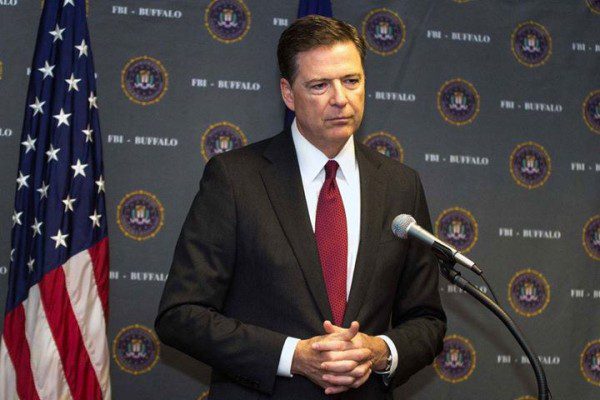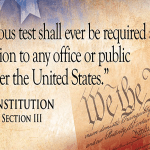
James Comey, the FBI director fired by President Trump, was interrogated in a congressional committee in a much-hyped event that gives ammunition to both Trump’s critics and his defenders.
Comey agreed that Trump was not under criminal investigation, that the Russian probe is a counter-intelligence matter. MSNBC pundit Chris Matthews, a liberal who is no fan of Trump, said that the “collusion theory”–that Trump and his campaign had been conspiring with the Russians to throw the election–“comes apart” with Comey’s testimony.
We also learned that the leaker of Comey’s notes on his meetings with Trump was Comey himself.
But Comey also detailed Trump’s efforts to get him to stop the investigation of fired national security director Michael Flynn. The obstruction of justice accusation is still very much alive.
What we mostly learned from Comey’s testimony–as he talked about Trump’s harangues, Trump’s “lying” about him, and the “awkward silence” when Trump demanded his loyalty–is what it’s like to work under a difficult boss that you don’t like and don’t respect.
From News from The Associated Press:
Former FBI Director James Comey asserted Thursday that President Donald Trump fired him to interfere with his investigation of Russia’s ties to the Trump campaign, bluntly accusing the White House of spreading “lies, plain and simple.”
Comey also revealed that he’d orchestrated the public release of information about his private conversations with the president in an effort to further the investigation.
Comey’s testimony, at a hugely anticipated congressional hearing that captured the country’s attention, provided a gripping account of his interactions with Trump and underscored the deep distrust that had soured their relationship before his stunning firing last month.
In occasionally explosive statements, Comey portrayed Trump as a chief executive dismissive of the FBI’s independence and made clear that he interpreted Trump’s request to end an investigation into his former national security adviser as an order coming from the president.
He expressed confidence that the circumstances of his firing, and Trump’s overall behavior toward him, could be investigated by special counsel Robert Mueller for possible obstruction of justice. But he declined to offer an opinion on whether it met such a threshold.
[Keep reading]
Photo of James Comey by Rich Girard, Flickr, Creative Commons License












